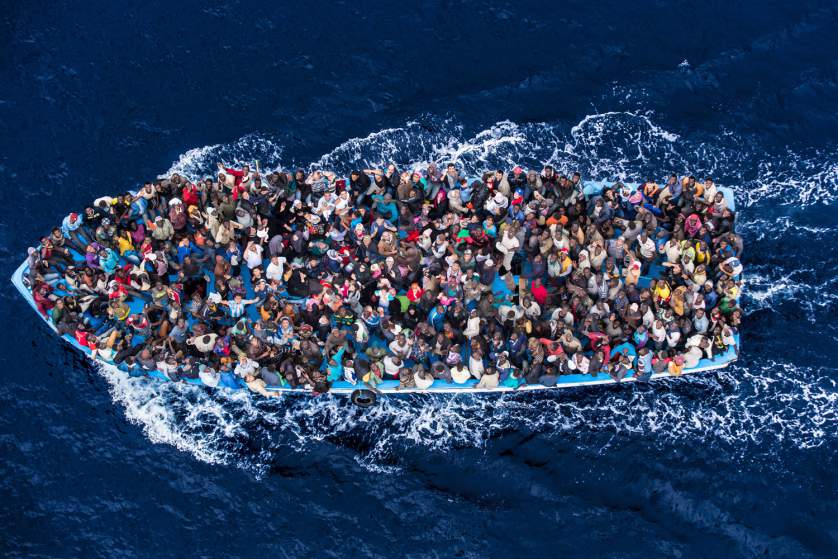People smuggling roots in Libya are far deeper than the boatmen
Published on 2015 April 28, Tuesday Back to articles
Italy migrants refugees asylum seekers
Leaders of Libya’s two rival governments have so far refused to co-operate with international efforts to cope with the staggering migrant crisis emanating from its shores.
By doing so, they stubbornly protected nearly irrelevant national sovereignty considerations, but demonstrated just part of Libya’s culpability for a complicated problem which is not just of the boatmen’s making, and is not just the EU’s to solve.
Over 1,100 people drowned off the coast of Libya last week trying to escape oppression in their home countries and mistreatment and instability in Libya for a better life in Europe. That made this the most devastating period in the migrant crisis that has grown since Libya fell into post-revolution instability more than three years ago.
In 2013, a similar tragedy near the Italian island of Lampedusa provoked the Italian government to launch Operation Mare Nostrum. But the ambitious campaign was too expensive, and was eventually replaced by an inadequate force provided by the EU’s border security agency, Frontex, named Triton.
Europe has borne a disproportionate amount of the blame for the high number of migrant deaths in the Mediterranean, and the crisis only promises to get worse. But the Libyan authorities have neither the will nor the capability to thwart the problem before migrants embark from their shores.
The western Libyan government has threatened to take military action against European ships which approach its shores, while also campaigning for European recognition of their legitimacy before agreeing to co-operate. But there is no central authority in western Libya able to stop the illegal people smuggling networks, and the country’s meagre coast guard can do little in any case (its members often pad their small salaries with bribes to look the other way).
Traffickers earn hundreds of thousands of dollars per boat, operating openly without fear of prosecution. Many even use Facebook to advertise to potential migrants. With the profits from this business, smugglers buy more weapons, and larger boats. The day after more than 800 people drowned leaving Libya, another boat loaded 200 more migrants for the trip. To cope with the crisis, in addition to targeted military action, migrants need safer options, smugglers need incentives to get legitimate jobs, and Libya needs peace.
Without a viable partner in Libya, European countries are exploring ways to cope with the crisis on their own. But the people smuggling trade existed in Libya long before the current phase of unrest after Libya’s revolution.
The complex industry is deeply rooted in the coastal economy, as well as in the well-established people smuggling routes that crisscross the Sahara. Syrians form the largest subset of migrants making the perilous trip, having entered Libya through Jordan, Egypt, and then Sudan. Eritreans fleeing their own repressive government also travel up from Sudan, with other sub-Saharan African migrants coming in from Niger and Mali.
Smugglers are indifferent to the fate of their human cargo. Many people die crossing the desert – packed as they are in un-airconditioned trucks making a trek for hundreds of kilometres with no access to water. As the prices per person go down, smugglers try to pack more and more people into small boats to make up the difference. And Libyan authorities are often equally indifferent.
Migrants who cannot yet afford to take a boat to Europe gather on street corners in coastal towns ready to perform manual labour to earn the cash. Others are detained in illegal detention centres where they are often beaten, and given no indication of when they will be released. Even the official migrant detention centres are woefully inadequate.
When the author visited such a centre in 2013, over 50 migrants were packed into each lightless room, adjacent to paddocks housing unruly, emaciated dogs. None of the migrants knew when they would be processed by the weak justice system and either allowed to stay or sent back to their home countries. Though they appeared to be well-fed, it is likely that many of those individuals are still in custody, with no end in sight.



